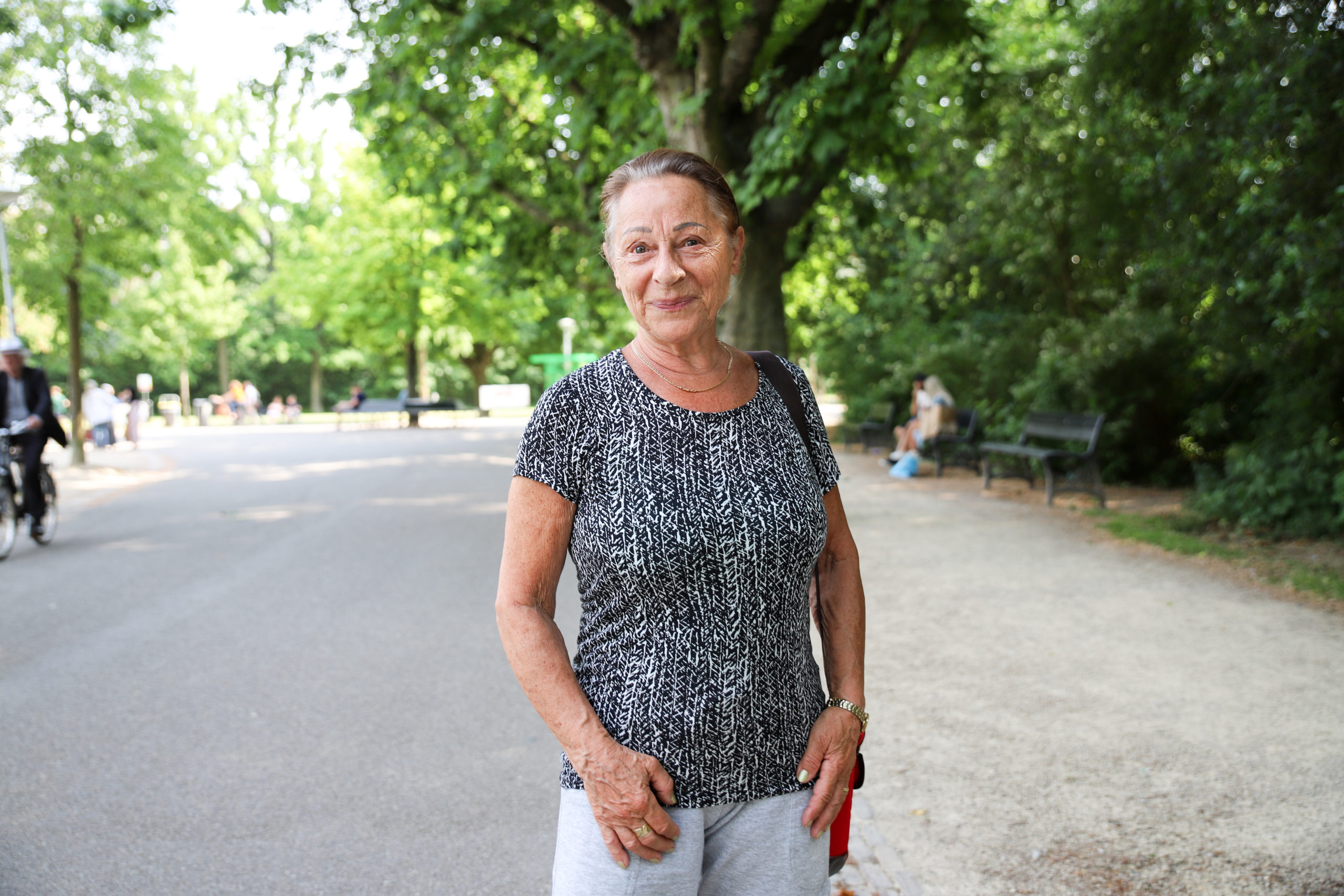Schilderijen in de etalage “bij de Dokters”
door Klaas Visscher

“Right before departure, I was separated from my family and taken off the train at Amsterdam Central Station. They took me to a children’s home. I was only two years old, so I don’t have a lot of memories. I do remember that every time someone rang the door, I had to hide in the basement. When the war ended, I went from one foster family to another. I have lived in over 27 different foster homes. It was not a secure upbringing. When I was nine, I discovered ballet. A few years later, I got accepted into a dance company. I’ve been told that dancing is for prostitutes, but I never cared. I always said, ‘if dancing is for prostitutes, then I’m a prostitute.’ Dancing became a way for me to express my emotions. I met my ex-husband when I was eighteen, and we had two children. I became a dance teacher. Even though life continued, I never stopped having questions about my past, what exactly happened to my parents, and what my life was like in the children’s home. Since my family was Jewish, I have always assumed they got deported to the death camps, but it was never confirmed. When there is nobody to verify your story, you sometimes doubt if it really happened. I have never been able to find anything about my past until twelve years ago. I was at my foster mother’s house when my then-boyfriend called and said there’s an article in the paper about the children’s home. I picked up the paper and saw multiple photos of emaciated children. Amongst those children, I saw a little girl. It was me. Someone had found a box of files and pictures in the garbage and brought it to a journalist. Amongst those files, statements were detailing the abuse, neglect, and mistreatment that took place in the children’s home. I remember I was shaking reading the article. It was painful and confronting, but at the same time, it felt like recognition. For the first time, I could say this is not a story that I made up. This really happened. ”
door Debra Barraud